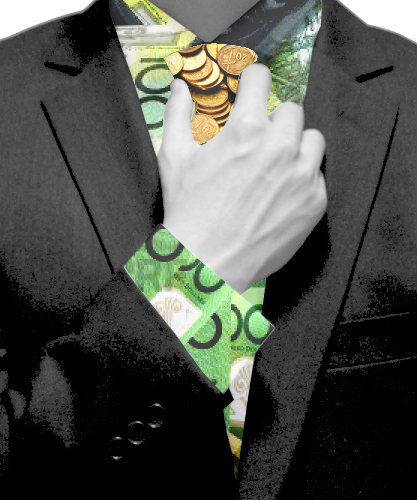State sweeps set stage for unlikely federal probe
 Some may be wondering what happened to a budding movement from a few months ago, when it appeared there would be a push to set up a federal corruption watchdog.
Some may be wondering what happened to a budding movement from a few months ago, when it appeared there would be a push to set up a federal corruption watchdog.
The idea was revived most recently by former Independent Commission Against Corruption head David Ipp, QC, on the ABC's Four Corners program.
He said a federal ICAC would help restore the “breakdown of trust” in both major parties, stemming from ongoing inquiries into NSW Liberal Party corruption, Labor-linked union corruption and the misconduct of Peter Slipper and Craig Thomson.
The call will have resonated with the public, but it has historically been a tricky idea to get politicians to pursue.
Bills have been put forward to bring about a change, or at least prompt a debate, several times in the last few years. Bob Brown introduced a private member's bill in 2010 to form a national integrity commission, a bill which was resubmitted by Greens MP Adam Bandt in 2012. Labor and the Coalition soundly killed the bill depsite broad support from the cross bench.
In 2013, Christine Milne as Greens leader, tabled the bill once more and again failed to find any support.
One of the closest moves came when the previous Labor government actually drafted a National Anti-Corruption Plan, but it excluded politicians, involved no actual agencies or mechanisms for it to work, and was not acted on in an realistic sense.
Some reports say Labor’s interest in strengthening anti-corruption provisions is fairly meagre, nd only really aimed at p[lacating the concerns of its more left-leaning members.
In New South Wales it appears corruption is found nearly everywhere a probe is sent, and this may be both justification for a nationally-focused commission and the key reason it has never occurred.
This week saw the federal Liberal Party brought in to the NSW corruption inquiry. It became embroiled after evidence suggested LNP national director Brian Loughnane was fully aware of political donations from banned property developers being funnelled through federal channels to fund NSW local elections.
Counsel assisting the commission, Geoffrey Watson, SC, said evidence showed the federal party was willingly used “as a means of washing and re-channelling donations made by prohibited donors” before the last state election.
In a scene that be considered passé for even a Hollywood gangster film, the inquiry heard Jeff McCloy, who later became Newcastle mayor, allegedly gave Liberal MP Andrew Cornwell $10,000 cash in a paper envelope during a clandestine meeting in the back of his Bentley.
Speaking to local newspaper the Newcastle Herald, Mayor McCloy said; “I have not done anything wrong. I have never sought any favours and I have never got any favours”.
The inquiry also heard that tens of thousands of dollars were taken from developers including Nathan Tinkler's Buildev group, despite him being listed on the banned donors roll.
The revelations made one Liberal MP’s campaign manager roll-over and assist the commission, in return for an indemnity against prosecution.
An email given to the commission suggests Mr Loughnane was aware of arrangements for the illegal donations to be made to the federal party, which would subvert the NSW donations ban.
“Brian Loughnane has agreed that for the time being the Fed Sec will operate on the policy … in effect, there is no benefit for a NSW donor to donate via the Fed Sec, unless they are a property developer,” the email showed federal Liberal executive Colin Gracie told Simon McInnes, the finance director of the NSW Liberals.
Inquiries have recently brought down former NSW premier Barry O'Farrell over a $3000 bottle of wine, NSW ministers Peter Hartcher and Mike Gallacher, and compelled Arthur Sinodinos to step down his position as federal assistant treasurer.
The ICAC will soon look into claims that former Labor treasurer Eric Roozendaal and his corrupt colleague Joe Tripodi “improperly took steps” to benefit Buildev.
Several reporters have been live-blogging ICAC proceedings via the Twitter hashtag #ICAC.







 Print
Print